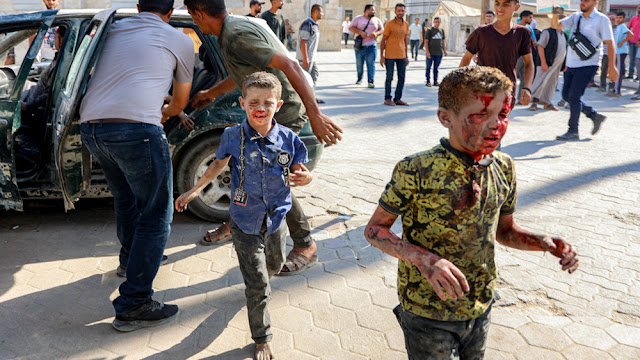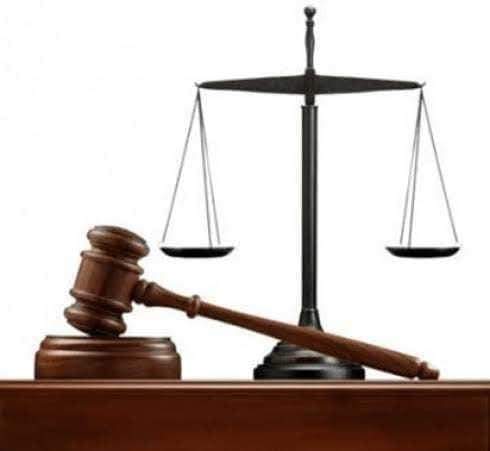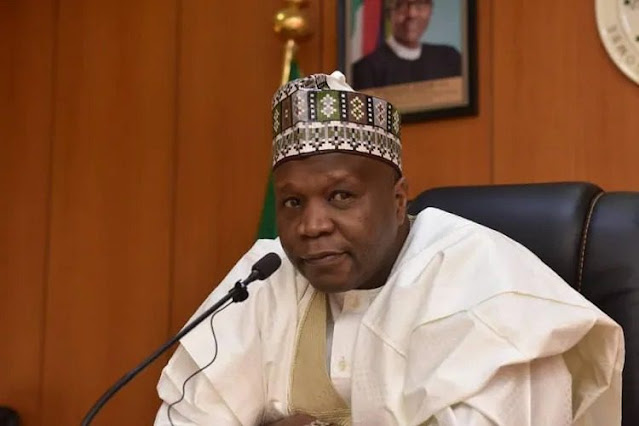On September 1, 2025, the International Association of Genocide Scholars (IAGS), the world’s leading academic body dedicated to genocide studies, passed a landmark resolution declaring that Israel’s ongoing military operations in Gaza constitute genocide, war crimes, and crimes against humanity. The resolution, backed by 86% of voting members, cited Israel’s actions as meeting the legal criteria outlined in Article II of the 1948 United Nations Convention for the Prevention and Punishment of the Crime of Genocide. The Palestinian resistance movement Hamas swiftly hailed the resolution as a “new legal document” affirming Israel’s crimes, condemning the international community’s inaction, and urging urgent steps to halt the violence. This development, reported by Press TV on September 2, 2025, marks a significant moment in the Israeli-Palestinian conflict, intensifying debates over international law, accountability, and the role of global institutions in addressing human rights violations.
Injured Palestinian children react as they arrive at a hospital following an Israeli strike in Gaza City on July 2, 2025. (Photo by AFP)
This article delves into the details of the IAGS resolution, Hamas’s response, and the broader implications for Israel, Palestine, and the international community. It explores the historical and political context of the Gaza conflict, the legal framework of genocide, and the socio-political dynamics shaping global reactions. By critically examining the establishment narrative and incorporating insights from web sources and X posts, the article offers a comprehensive analysis and proposes policy recommendations to address the crisis and foster accountability.
Details of the IAGS Resolution and Hamas’s Response
The IAGS, a 500-member organization founded in 1994, passed its resolution on August 31, 2025, following a vote in which 28% of members participated, with 86% of those voting in favor. The three-page document meticulously outlines Israel’s actions in Gaza since October 2023, asserting that they meet the legal definition of genocide, which includes “acts committed with intent to destroy, in whole or in part, a national, ethnical, racial or religious group.” Specific acts cited include indiscriminate attacks on civilians and civilian infrastructure, starvation policies, deprivation of humanitarian aid, sexual and reproductive violence, and forced displacement of nearly all of Gaza’s 2.3 million residents. The resolution also acknowledges that Hamas’s October 7, 2023, attack on Israel, which killed 1,200 people and took 251 hostages, constituted international crimes, but emphasizes that these do not justify genocide.
Melanie O’Brien, IAGS president and a professor of international law at the University of Western Australia, described the resolution as “a definitive statement from experts in the field of genocide studies that what is going on on the ground in Gaza is genocide.” She called on Israel to “immediately cease all acts that constitute genocide, war crimes, and crimes against humanity against Palestinians in Gaza.” The resolution builds on prior IAGS declarations, such as those recognizing China’s treatment of Uyghurs and Myanmar’s crackdown on Rohingya as genocides, reinforcing its authority in the field.
Hamas, in a statement issued on September 1, 2025, praised the IAGS resolution as a “prestigious scholarly stance” that adds to a growing body of international reports documenting Israel’s actions. The group described it as a “new legal document” that reinforces evidence presented before international courts, such as the International Court of Justice (ICJ), where South Africa has accused Israel of genocide. Hamas condemned the international community’s “failure to act against Israel and its war criminal prime minister,” calling it a “stain of shame” and urging the United Nations and other bodies to take urgent steps to stop “genocide, displacement, and ethnic cleansing” in Gaza. Ismail Al-Thawabta, head of the Hamas-run Gaza government media office, emphasized that the resolution “places a legal and moral obligation on the international community to protect civilians and hold the occupation accountable.”
Israel’s Foreign Ministry swiftly rejected the resolution, labeling it “disgraceful” and “entirely based on Hamas’ campaign of lies.” The ministry argued that Israel is the victim of genocide, citing the October 7 attack, and accused the IAGS of poor research and bias. The resolution’s passage has sparked polarized reactions, with supporters on X praising its legal weight, while critics argue it unfairly targets Israel. One X post stated, “The IAGS resolution is a game-changer for accountability in Gaza,” while another called it “a biased attack on Israel’s right to self-defense.”
Historical Context: The Gaza Conflict
The IAGS resolution and Hamas’s response must be understood within the historical context of the Israeli-Palestinian conflict, particularly the ongoing war in Gaza:
October 7, 2023, Attack: The conflict escalated when Hamas-led militants attacked southern Israel, killing 1,200 people, mostly civilians, and taking 251 hostages. The attack, condemned as a war crime by the IAGS and others, prompted Israel’s military response, which it framed as self-defense against Hamas, designated a terrorist organization by the U.S., EU, and others.
Israel’s Response: Since October 2023, Israel’s military operations in Gaza have killed over 63,500 Palestinians and injured 160,660, according to Gaza’s Health Ministry, which is considered reliable by the UN despite not distinguishing between civilians and combatants. Women and children make up roughly half the casualties. Israel’s actions include widespread bombing, destruction of infrastructure, and restrictions on aid, leading to a UN-confirmed famine in parts of Gaza.
International Legal Actions: South Africa’s 2024 ICJ case accused Israel of genocide, with a January 2025 ruling finding the claim “plausible” and ordering Israel to prevent genocidal acts. The International Criminal Court (ICC) issued arrest warrants for Israeli Prime Minister Benjamin Netanyahu and former Defense Minister Yoav Gallant for war crimes, alongside a warrant for Hamas’s military chief, Mohammed Deif (later withdrawn after his death).
Historical Precedents: The Israeli-Palestinian conflict, rooted in the 1948 establishment of Israel and the displacement of Palestinians (Nakba), has seen recurring violence in Gaza, including major operations in 2008-09, 2012, 2014, and 2021. Israel’s blockade of Gaza since 2007, citing security concerns, has exacerbated humanitarian conditions, fueling accusations of collective punishment.
Global Reactions: The conflict has polarized global opinion, with Western nations like the U.S. and UK supporting Israel’s right to self-defense, while others, including Turkey and Malaysia, have condemned Israel’s actions as genocidal.
Legal Framework: Defining Genocide
The IAGS resolution hinges on the 1948 UN Genocide Convention, which defines genocide as acts committed with intent to destroy, in whole or in part, a national, ethnical, racial, or religious group. These acts include killing members of the group, causing serious bodily or mental harm, imposing conditions to destroy the group, preventing births, and forcibly transferring children. The IAGS cited Israel’s actions—indiscriminate attacks, starvation policies, and forced displacement—as meeting this definition.
Critics, including Israel’s Foreign Ministry, argue that the resolution misapplies the term “genocide,” which requires specific intent, and that Israel’s actions target Hamas, not Palestinians as a group. They point to the October 7 attack as evidence of Hamas’s genocidal intent, noting its charter’s call for Israel’s destruction. However, the IAGS and other scholars, like Sergey Vasiliev, argue that the legal assessment of genocide in Gaza has become “mainstream within academia,” supported by UN reports and NGO findings.
Strategic Motivations for Hamas’s Response
Hamas’s swift endorsement of the IAGS resolution reflects strategic objectives:
International Legitimacy: By framing the resolution as a “new legal document,” Hamas seeks to bolster its case before international courts, leveraging scholarly support to counter its terrorist designation.
Diplomatic Pressure: Calling for UN action aligns with Hamas’s efforts to isolate Israel diplomatically, as seen in its support for Turkey’s airspace ban and Malaysia’s call for Israel’s UN expulsion.
Mobilizing Support: The resolution strengthens Hamas’s narrative among Palestinians and global allies, portraying Israel as the aggressor and rallying support for resistance.
Countering Israel’s Narrative: By highlighting international condemnation, Hamas challenges Israel’s self-defense argument, emphasizing civilian suffering in Gaza.
Domestic Cohesion: Amid Gaza’s humanitarian crisis, the resolution reinforces Hamas’s leadership role, despite internal criticisms of its governance.
Implications for Israel
The IAGS resolution poses significant challenges for Israel:
Diplomatic Isolation: The resolution adds to pressure from the ICJ, ICC, and rights groups, potentially isolating Israel in global forums.
Domestic Backlash: While mainstream Israeli opinion supports the government’s actions, dissent from groups like B’Tselem and novelist David Grossman highlights internal divisions.
Legal Accountability: ICC arrest warrants and the ICJ case increase the risk of legal consequences for Israeli leaders, though enforcement remains challenging.
Public Perception: The resolution fuels global criticism, as seen in X posts accusing Israel of “genocide denial,” complicating its international image.
Military Strategy: Continued operations risk further accusations, potentially forcing Israel to adjust tactics to minimize civilian harm.
Implications for Hamas and Palestine
The resolution has significant implications for Hamas and the Palestinian cause:
Strengthened Narrative: The scholarly endorsement bolsters Hamas’s claim of victimhood, enhancing its global advocacy efforts.
Humanitarian Focus: Highlighting Gaza’s crisis, including famine and displacement, draws attention to Palestinian suffering, potentially increasing aid.
Internal Challenges: Hamas’s governance, criticized for corruption and militancy, may face scrutiny as it seeks to leverage the resolution.
Regional Support: Endorsements from Turkey and Malaysia strengthen Hamas’s alliances, though dependence on external actors risks autonomy.
Ceasefire Negotiations: The resolution may pressure Israel to engage in ceasefire talks, though Hamas’s insistence on Netanyahu’s obstruction complicates progress.
Broader Geopolitical Context
The IAGS resolution reflects broader geopolitical dynamics:
Global Polarization: The Israeli-Palestinian conflict divides global powers, with the U.S. and UK backing Israel, while Russia, China, and much of the Global South support Palestine.
Role of International Law: The resolution underscores the growing influence of international legal bodies like the ICJ and ICC, though their enforcement mechanisms remain limited.
Media and Bias: Accusations of pro-Israel bias in Western media, as seen in Reuters and BBC coverage, highlight challenges in shaping global narratives.
Social Media Influence: X posts amplify both support and criticism of the resolution, reflecting the platform’s role in shaping public discourse.
Human Rights Advocacy: The resolution aligns with efforts by groups like Amnesty International and B’Tselem, signaling a shift toward mainstream academic and legal recognition of Palestinian grievances.
Socio-Humanitarian Context: Gaza’s Crisis
The resolution draws attention to Gaza’s dire humanitarian situation:
Casualties and Displacement: Over 63,500 deaths and 160,660 injuries, with 90% of Gaza’s population displaced, highlight the scale of suffering.
Famine and Starvation: A UN-backed report confirmed famine in Gaza, with 348 deaths from malnutrition, exacerbated by Israel’s aid restrictions.
Infrastructure Destruction: Over 90% of Gaza’s housing and critical infrastructure, including hospitals and schools, have been damaged or destroyed.
Psychological Toll: The ongoing violence has caused widespread trauma, with limited access to mental health services.
International Aid: Restrictions on aid delivery, controlled by Israel, have worsened the crisis, prompting calls for urgent humanitarian intervention.
Challenges for Stakeholders
For Israel:
Legal Accountability: Facing ICJ and ICC scrutiny risks international sanctions and isolation.
Public Relations: Countering the genocide narrative requires robust communication, challenged by global media criticism.
Military Strategy: Balancing security objectives with international pressure to minimize civilian harm is complex.
For Hamas and Palestine:
Governance Challenges: Hamas’s militancy and governance issues undermine its ability to capitalize on the resolution.
Humanitarian Crisis: Addressing Gaza’s immediate needs requires international cooperation, complicated by Hamas’s terrorist designation.
Diplomatic Isolation: Reliance on non-Western allies limits broader international support.
For the International Community:
Enforcement Limitations: The UN and ICC lack mechanisms to enforce rulings, hindering accountability.
Polarized Responses: Western support for Israel and Global South backing for Palestine complicate unified action.
Media Bias: Addressing accusations of bias in Western reporting is crucial for credible discourse.
Opportunities for Resolution
For Israel:
Ceasefire Engagement: Pursuing a comprehensive ceasefire could reduce accusations of genocide and ease international pressure.
Humanitarian Aid: Easing aid restrictions could counter famine allegations and improve global perception.
Public Diplomacy: Transparent communication on X and other platforms could address misinformation.
For Hamas and Palestine:
Diplomatic Advocacy: Leveraging the resolution to push for UN peacekeeping forces could protect civilians.
Humanitarian Focus: Collaborating with NGOs to deliver aid could strengthen Palestinian resilience.
Unity Efforts: Engaging moderate Palestinian factions could bolster the cause’s legitimacy.
For the International Community:
UN Mediation: Deploying a peacekeeping force, as urged by rights groups, could stabilize Gaza.
Aid Delivery: Coordinated international efforts to deliver aid could alleviate suffering and pressure Israel to comply with ICJ rulings.
Legal Enforcement: Strengthening ICC and ICJ mechanisms could ensure accountability for all parties.
Policy Recommendations
To address the crisis and foster accountability, the following recommendations are proposed:
Ceasefire Negotiations: The UN should mediate a comprehensive ceasefire, addressing Hamas’s demands for a permanent end to hostilities and Israel’s security concerns.
Humanitarian Aid Access: Israel should lift aid restrictions, with UN oversight to ensure delivery, reducing famine and displacement.
Strengthen Legal Mechanisms: The UN should enhance ICC and ICJ enforcement powers to hold violators accountable, regardless of political affiliations.
Media Transparency: Western media outlets should address bias allegations, ensuring balanced reporting on Gaza.
Regional Diplomacy: The Arab League and CELAC should facilitate dialogue between Israel and Palestine, promoting a two-state solution.
Public Engagement: Both sides should use platforms like X to communicate transparently, countering misinformation and fostering dialogue.
Civil Society Support: NGOs and academic bodies like the IAGS should continue documenting violations, amplifying calls for accountability.
Broader Implications for Global Politics
The IAGS resolution and Hamas’s response have far-reaching implications:
International Law: The resolution strengthens the role of academic bodies in shaping legal discourse, challenging state narratives.
Global Polarization: The conflict exacerbates divisions between Western and non-Western states, complicating UN action.
Humanitarian Advocacy: The focus on Gaza’s crisis highlights the need for global humanitarian intervention, potentially reshaping aid policies.
Media Dynamics: Addressing bias in Western media could restore credibility and balance to global reporting.
Public Mobilization: Social media’s role in amplifying the resolution underscores its power to shape narratives and pressure governments.
Looking Ahead: A Path to Justice and Peace
The IAGS resolution declaring Israel’s actions in Gaza as genocide marks a pivotal moment in the Israeli-Palestinian conflict, amplifying calls for accountability and humanitarian intervention. Hamas’s endorsement reflects its strategic aim to leverage international support, while Israel’s rejection underscores the challenges of reconciling competing narratives. The resolution, backed by rigorous academic analysis, adds weight to ongoing legal efforts at the ICJ and ICC, though enforcement remains a hurdle.
For lasting peace, both sides must engage in good-faith negotiations, prioritizing civilian protection and humanitarian aid. The international community, led by the UN, must strengthen legal and diplomatic mechanisms to hold violators accountable, while addressing media biases to foster balanced discourse. As Gaza faces unprecedented suffering, the IAGS resolution serves as a clarion call for action, urging the world to confront the humanitarian and legal dimensions of the crisis with urgency and resolve.






